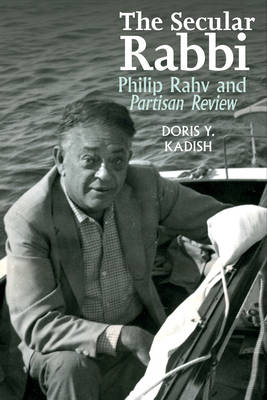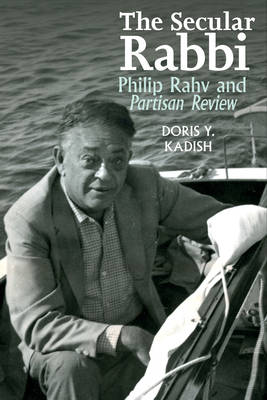
- Retrait gratuit dans votre magasin Club
- 7.000.000 titres dans notre catalogue
- Payer en toute sécurité
- Toujours un magasin près de chez vous
- Retrait gratuit dans votre magasin Club
- 7.000.0000 titres dans notre catalogue
- Payer en toute sécurité
- Toujours un magasin près de chez vous
Description
The Secular Rabbi is an intellectual biography of Philip Rahv, co-founder of Partisan Review, which T.S. Eliot called the best American literary periodical. It focuses on the ambivalent ties that Rahv, a Russian immigrant, retained to his Jewish cultural background. Drawing on letters Rahv wrote to her mother from 1928 to 1931, when he was still named Philip Greenberg, Doris Kadish delves into the complex and enigmatic character of a man admired by luminaries as diverse as George Orwell, Mary McCarthy, Saul Bellow, Elizabeth Hardwick, and William Styron. Textual analyses of Rahv's works are woven together with other disparate materials: historical accounts, genealogical records, memoirs by Rahv's colleagues, friends, and associates, interviews with persons who knew him, and the abundant body of secondary scholarship devoted to the New York intellectuals, the history of Partisan Review, and Jewish studies. Kadish positions herself in relation to Rahv in attempting to understand her own Jewish identity. In tracing Rahv's personal, political, and literary evolution, Kadish sheds light on such literary movements as modernism, proletarian literature, and Jewish writing as well as movements that defined American political history in the 20th century: immigration, socialism, communism, fascism, the cold war, feminism, and the New Left.
Spécifications
Parties prenantes
- Auteur(s) :
- Editeur:
Contenu
- Nombre de pages :
- 240
- Langue:
- Anglais
Caractéristiques
- EAN:
- 9781837641420
- Date de parution :
- 02-02-24
- Format:
- Livre broché
- Format numérique:
- Trade paperback (VS)
- Dimensions :
- 156 mm x 234 mm
- Poids :
- 340 g

Les avis
Nous publions uniquement les avis qui respectent les conditions requises. Consultez nos conditions pour les avis.






